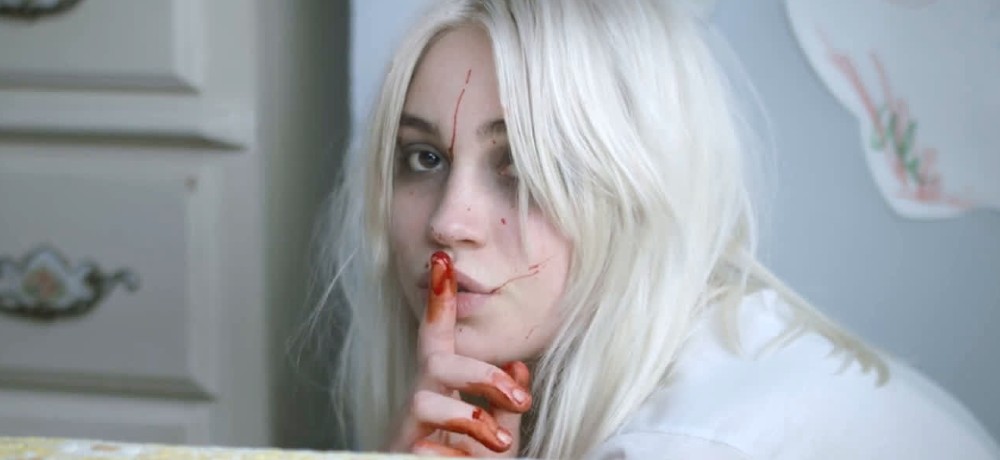


If you were given the choice to live one last day as a human or forever as a ghost, which would you choose? In Double Walker, the film’s main character chooses the latter. Simply credited as Ghost, she speaks of meeting two dark figures who present her with these two choices as though it were a dream. Played by the up-and-comer Sylvie Mix—who co-wrote the film with director Colin West—Ghost suddenly awakens and finds herself back home. Angry and confused over her death, she finds comfort sitting next to her mother on the couch, despite being unseen. The bond between this mother and her child is stitched throughout and presented strongly, and it helps that the mother is played by Mix’s own (Maika Carter). In attempting to learn the truth of what happened to her, the theme of domestic violence and the lingering effect it has on people’s lives is felt in every action Ghost makes. Her desire to avenge her own murder may stop the pain temporarily, but it has consequences.
A mother attempts to clean a blood-stained rug before attending her daughter’s funeral. It’s Christmas, but it’s far from joyous as she grief-strikingly pushes her tree to the floor with the crunch of breaking bulbs. Then, a man finds a young woman in the woods. Despite it being winter, she’s only wearing a white dress. She has a ghostly look with blonde hair and smokey eyes. He brings her back to his home, where we learn she has a vendetta. As flashes of both the past and present meld, Ghost is attempting to piece together what happened to her. Her memories become clearer as the film goes on, but there’s always the same group of men present: her father’s friends. She aims to kill them one by one, but then she meets Jack (Jacob Rice), a sweet movie theater usher who shows her genuine care and friendship. He reminds her of happier times, but nothing can stop her desperation to figure out the truth.
Double Walker’s short runtime is a drawback because its themes feel surface-level and a key mystery is never fully developed. It’s clear Ghost’s father has a dark secret, but it’s more of a guess than a clear answer (sex trafficking), and it’s hinted that Ghost saw something she shouldn’t have, but that’s never expanded upon, either. The theme of domestic violence is given more importance, and while these are topics that are difficult to discuss, with a longer runtime they could have delivered a bigger impact (especially when half the time you’re questioning why she’s going after these men in the first place).
Like in her fantastic feature debut, Poser, which premiered at Tribeca this year, Mix once again establishes herself as the next big thing in indie film. With barely any lines, she acts only with her expressions and actions, but she achieves at making Ghost an interesting character that the audience is intrigued by and roots for. She wanders with a curious look, like she’s seeing everything with new eyes—seeing life anew absence of abuse. In her form, she’s also able to interact with characters like Jack quite closely, but not so much where it lacks logic. A character who walks the line between good and evil in her violent and vengeful nature, Ghost is unlike any portrayal of a ghost I’ve seen before.
With a combination of a ghost story, vampirism, and true crime, Double Walker has a great mix of genres. While the nonlinear timeline can often be repetitious, it emphasizes that Ghost no longer has any grasp on the reality she once knew, and you can feel the loneliness of such an existence. But as she’s basically a serial killer that can never be caught, it would have been interesting to explore that side of things more; how investigators would have tried to solve a case of this kind. While Double Walker is a puzzle whose pieces don’t always come together smoothly, it manages to do a lot in its short runtime.
Interestingly, there are quite a few scenes featuring a TV playing a version of A Christmas Carol. By adding this detail, it feels like Ghost is playing a version of all three spirits in the novel: the Ghost of Christmas Past, Present, and Future. Trauma is generational and it haunts. Dripping down slowly like blood off a knife, abuse creates a pool that only spreads deeper and stains forever.
Movie Score: 3.5/5